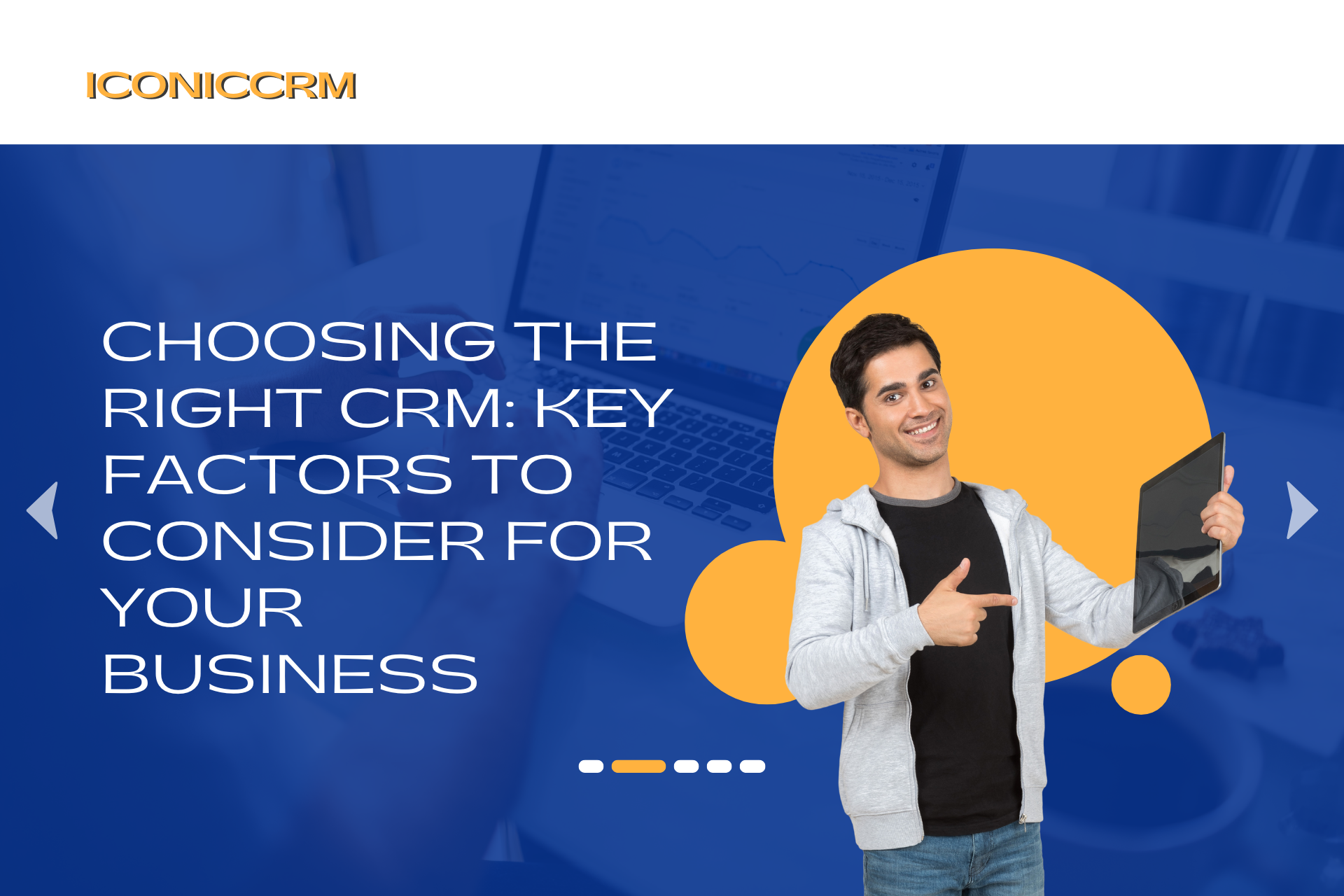Selecting the right Customer Relationship Management (CRM) system is a crucial decision that can impact the efficiency and success of your business operations. A well-chosen CRM can enhance customer interactions, streamline processes, and drive growth. To ensure you make the best choice, consider the following key factors when evaluating CRM options.
1. Define Your Business Needs and Goals
- Assess Your Requirements: Start by identifying your specific business needs and objectives. Consider what problems you need the CRM to solve, such as improving sales processes, enhancing customer support, or streamlining marketing efforts.
- Set Clear Goals: Outline the goals you want to achieve with the CRM, such as increasing sales efficiency, improving customer retention, or gaining better insights into customer behavior.
2. Evaluate CRM Features and Capabilities
- Core Features: Ensure the CRM includes essential features such as contact management, lead tracking, sales automation, and reporting. These are fundamental to managing customer relationships effectively.
- Advanced Capabilities: Depending on your needs, you may require advanced features such as marketing automation, integration with other tools, mobile access, or AI-driven analytics. Evaluate how well the CRM supports these capabilities.
3. Consider Integration and Compatibility
- Integration with Existing Systems: Choose a CRM that integrates seamlessly with your existing systems, such as email, accounting software, or ERP systems. Integration reduces data silos and improves overall efficiency.
- Compatibility: Ensure the CRM is compatible with your current technology stack, including operating systems, browsers, and devices used by your team.
4. Assess Ease of Use and Adoption
- User Interface: A user-friendly interface is crucial for ensuring that your team can easily navigate and use the CRM. Look for a system with an intuitive design and customizable dashboards.
- Training and Support: Evaluate the training and support options available. A CRM with comprehensive onboarding resources and responsive support can facilitate a smoother transition and help maximize user adoption.
5. Evaluate Scalability and Flexibility
- Scalability: Choose a CRM that can scale with your business as it grows. Ensure it can handle increased data volume, additional users, and expanded features without compromising performance.
- Customization Options: Look for a CRM that offers customization options, such as custom fields, modules, and workflows. This flexibility allows you to tailor the system to your specific business processes.
6. Consider Data Security and Compliance
- Security Features: Ensure the CRM provides robust security features, including data encryption, multi-factor authentication, and role-based access controls. Data security is essential for protecting sensitive customer information.
- Compliance: Verify that the CRM complies with relevant data protection regulations, such as GDPR or CCPA, to ensure your business meets legal requirements and safeguards customer data.
7. Review Cost and Pricing Structure
- Pricing Models: Understand the CRM’s pricing structure, including subscription fees, licensing costs, and any additional expenses for features, integrations, or user seats. Compare pricing options to find a solution that fits your budget.
- Total Cost of Ownership: Consider the total cost of ownership, including implementation, training, support, and ongoing maintenance. Factor these costs into your decision-making process.
8. Check Vendor Reputation and Reviews
- Vendor Reputation: Research the CRM vendor’s reputation in the industry. Look for reviews, case studies, and testimonials from other businesses to gauge the vendor’s reliability and customer satisfaction.
- Customer Support: Assess the quality of customer support provided by the vendor. Responsive and knowledgeable support can be crucial for resolving issues and ensuring smooth CRM operation. Good project management software will help you collaborate effectively and ensure that your projects are successful.
Conclusion: Making an Informed Decision
- Align with Business Needs: The right CRM should align with your business goals and address your specific needs. Take the time to evaluate your options thoroughly and choose a system that supports your objectives and enhances your operations.
- Continuous Evaluation: Regularly review your CRM’s performance and impact on your business. Stay open to making adjustments or exploring new solutions as your business evolves and your needs change.
By carefully considering these factors, you can select a CRM system that not only meets your current requirements but also supports your business growth and success in the long term.
|












